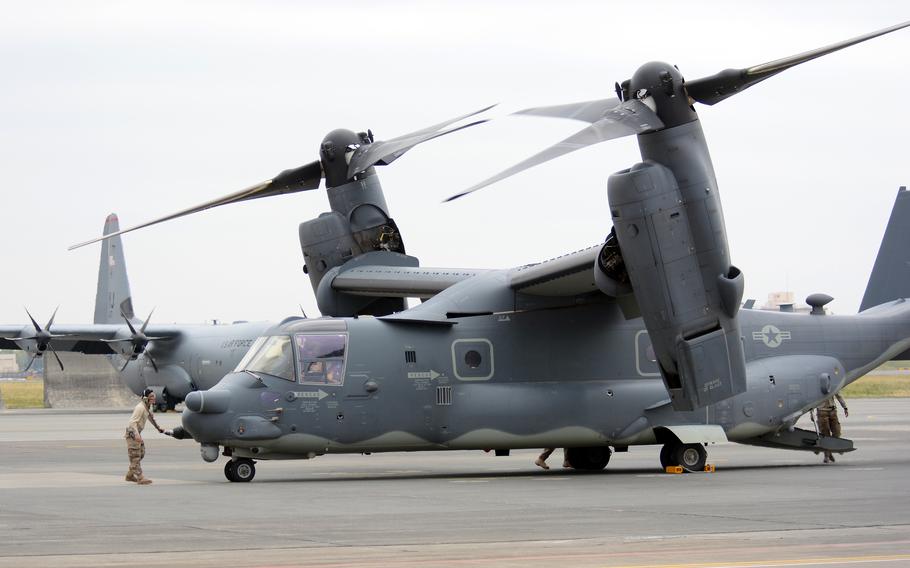
A CV-22B Osprey arrives at Yokota Air Base, Japan, April 5, 2018. (Stars and Stripes)
TOKYO — U.S. forces won’t resume V-22 Osprey aircraft flights over Japan without prior coordination with the Japanese government, the country’s defense minister said this week.
The U.S. government is examining the safety of the helicopter-plane hybrids after eight airmen died in a November crash off southwestern Japan.
The U.S. military’s entire fleet of tiltrotors worldwide, including Air Force CV-22 Ospreys based in western Tokyo and Marine Corps MV-22 Ospreys on Okinawa, have been grounded since Dec. 6. Japan also grounded its fleet of 14 Ospreys after the accident.
The U.S. defense secretary ordered that Osprey flight cannot resume without coordination with the Japanese government, Japanese Defense Minister Minoru Kihara told reporters at a news conference Tuesday. Tokyo has urged U.S. forces not to restart such operations until safety is ensured, he said.
“Ensuring flight safety is the top priority when operating U.S. military aircraft, and we are currently conducting confirmation work to ensure flight safety after receiving thorough information from the U.S. side regarding the recent Osprey accident,” he said.
The U.S. government informed Japan that most of the crashed Osprey’s wreckage, including the voice recorder and flight data recorder, has been recovered and that analysis and investigations are underway, Kihara said.
“However, at this point, it is difficult to give a definitive answer regarding the timing of compiling the survey results or the prospect of resuming operations,” he said. “It goes without saying that ensuring flight safety is the top priority shared by Japan and the United States, and we have confirmed that Japan and the United States will work closely together to address this issue.”
The Japanese government takes seriously the concern expressed by the community following this accident, Kihara said.
The safety of service members and Japanese communities remain a top priority, Air Force Maj. Thomas Barger, a U.S. Forces Japan spokesman, said by email Wednesday.
“We continue to have good communications between our senior leaders and are in constant dialogue regarding aviation safety and other safety-related issues,” he said. “As always, we continue to coordinate closely with our [Japanese] counterparts.”